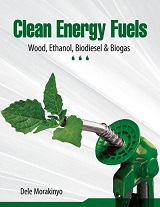
Environmental and Energy Business Resources
...everything environmental and energy...
Reduce, Reuse and Recycle (3Rs or R3)
Why do we need to adopt the 3Rs?
The common practice of waste disposal is disposal in Municipal or locally constructed landfills. In the landfills, the wastes are contained and immobilized so that they do not interact with the environment and hence could not cause adverse effect on humans and the environment. However landfills fill up fast because of the large quantities of wastes being generated on daily basis by our communities. This is one of the reasons while 3Rs the Waste Reduction initiatives of Reduction, Reusing, and Recycling are encouraged prior to final waste disposal in landfills. The following are the main advantages of 3Rs:
- 3Rs waste management approach lowers the quantity of wastes that ends up in the landfill;
- As waste generated decreases, the lifespans of our landfills increase thus reducing pressure on our land resources being required for landfilling
- 3Rs lower cost of waste management. Waste management involves waste collection from generation sources, transportation to treatment centres; sorting to various waste types or waste streams and final disposal. The costs of of each of these work items involved in waste management decrease as the volume of waste generated decrease.
- 3Rs, particularly reusing helps others who are in need
- Most importantly, 3Rs reduces energy usage and preserves the environment.
The 3Rs are further discussed below with some tips provided for how you can be involved.
Reduction
Waste reduction attempts to reduce waste generation from source. Reduction ensures that we minimize the amount of wastes that we are generating right from home, commercial centres, industries and public offices.
Every individual generates tons of waste over the course of a short period. The wrappings of the food we eat, our disposable cups and plates, tissue papers/toiletries, old clothes, shoes and wristwatches, household appliances etc. All these materials will have to be collected and disposed off in local landfills. We can make efforts that can potentially reduce the volume or amount of these wastes that we generate. Some of the tips for waste reduction are listed below.
Waste Reduction Tips:
Some simple waste reduction actions that could be taken by every individual are listed below:
- Less packaging or no packaging at all: Buy products that come with less packaging or no packaging at all. Fresh foods do not come with wrappings, so if you eat fresh foods you will be reducing wastes. Avoid individually wrapped items such as cheese slices, etc. There are lots of commercial goods that contain more wrappings than the goods themselves. Manufacturers should aim to reduce cosmetic wrappings but only do sufficient wrappings to ensure that the goods are not destroy in transit. Buyers should also discourage too much wrappings by avoiding to buy goods that are heavily wrapped. Festivals (Christmas, new year or holidays)'s gifts should be minimally wrapped. So also are gifts for special occasions (birthdays, weddings etc)
- Only what you need: Buy only what you need to reduce the amount of stuffs you throw away. Resist buying stuffs on sale just because they are on sale; buy them only if you need them.
- Bulk purchase of items reduce waste. Also, while going for grocery shopping, take your own plastic bags to the store rather than buying new plastic bags from the store all the time. Better still, you can use waste cartoons the store has destined for disposal
- Durable and not cheap/low quality materials: Buy durable materials that will last a long/life time (which may be more expensive) rather than cheap ones that will need to be garbaged within days and be replaced with another cheap one - e.g. buy quality razors rather than the disposable ones.
- For children/young ones, buy durable metal/wood toys rather than plastic toys that will be damaged quickly.
- Avoid buying disposables (if possible). Desist from buying disposable cameras, disposable plates, spoons, forks, knifes, cups which will only make the landfills to fill up quickly. Use your own mug rather than disposable cup from coffee shops. In fact some coffee shops now give discount/rebate on your coffee or tea if you come with your own mug and do not use the disposable cups. Avoid bottled water, buy water filter, fill your bottle with water from the filter as need be; workers should fill up their bottles from home while going to your workplaces.
- Home or commercial printing should be done if and only if you have. Do print previews always before printing to avoid bad printing leading lots paper wastes. Print, always, on both sides of the paper (if possible).
Reuse
Waste Reuse ensures that things we bought or acquired for a particular purpose but are no longer required for that purpose are put to some other uses that they may be useful for. This include passing on the things we no longer need but are still in good form to others.
Waste Reuse Tips:
Some simple waste reusing actions that could be taken by every individual are as follows:
- Think of reusing a used product first before throwing it into the garbage. For example, try growing organic vegetables in containers or window boxes that you would have otherwise throw into a garbage can;
- Consider passing on unused items that could still be useful to someone else. Your clothes can be passed on to your siblings, relatives or even your children as they grow. In a family clothes or shoes etc could be passed on from one child to the next and so on ;
- If you have no relatives or children to pass on your items to, consider sending them to charity organizations or stores;
- You can also consider a garage or car boot sale to dispose off your no-longer-required items to others that would need them.
- Buy reusable/rechargeable products when available - e.g. rechargeable batteries instead of disposable ones.
Recycling requires changing the form of an item we have used for a purpose, but are no longer required for the same purpose for which they were purchased (and cannot be reused or no one wants them in their current form), into a different form that is useful for other purposes. First consider reusing. If it cannot be reused consider recycling. If it cannot be recycled then consider throwing it into garbage.
Waste Recycling Tips
Some simple waste recycling actions that could be taken by every individual are as follows:
- Participate in community recycling process: Recycle your drink and other cans and bottles (you get some money for doing this in some communities), your papers wrappings.
- Have a garage sale to help recycle your unwanted items. Someone's trash is another's treasure.
- Where possible, donate electronic equipment to specific recycling groups.
- Buy recycled products when available, that includes paper towels, napkins, toilet paper, tissue, school/office supplies and clothing.
Follow the links in the left pane to learn about other ways of saving on energy.
Other websites of related contents:
Ten sure ways to save on your home energy bill and help reduce global warming
All Information on our website are free for your use. You are required to reference our website each time you use our materials. Please link back to: Environmental and Energy Business Resources using website address: http://www.environbusiness.com.

